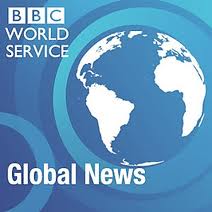The New Political Communication Unit at Royal Holloway is based in the Department of Politics and International Relations, which is hiring four new tenured/permanent posts. We hope to receive applications in the field of Political Communication and related areas. Details below.
Department of Politics and International Relations
Lecturer in Politics
Lecturer in International Relations
Lecturer in Politics or International Relations (Quantitative Methods)
Senior Lecturer/Reader in International Relations
Lecturer salary is in the range £39,516 to 46,741 per annum inclusive of London Allowance
Senior Lecturer/Reader salary is in the range £48,075 to £55,367 per annum inclusive of London Allowance
The Department of Politics and International Relations at Royal Holloway, University of London, invites applications for four posts, three at Lecturer and the fourth at Senior Lecturer/ Reader level.
We welcome applicants whose research includes a broad range of theoretical and methodological approaches, including, as indicated by the listing of posts above, candidates able to teach and research using advanced quantitative methods. The department has particular interest in research and teaching in the following areas: American Politics; Asia and the Middle East; Development; Elections, Public Opinion and Parties; International Organizations; International Security; Political Communication; Public Policy.
Successful candidates will be expected to contribute to foundational teaching at undergraduate and/or postgraduate level, as well as offer specialist option courses in their particular fields. They will have an established record of research excellence, or demonstrable potential for such excellence.
For the junior positions it is expected that the successful appointees will have been awarded their PhDs by September 1, 2013.
These are full time and permanent posts, available from September 2013. This post is based in Egham, Surrey where the College is situated in a beautiful, leafy campus near to Windsor Great Park and within commuting distance from London.
For an informal discussion about the posts please contact the Chair of the Search Committee: Dr Nathan Widder (Head of Department), preferably by email on n.e.widder@rhul.ac.uk. See also our department website: http://www.rhul.ac.uk/politicsandir/
To view further details of these posts and to apply please visit https://rhul.engageats.co.uk. The RHUL Recruitment Team can be contacted with queries by email at: recruitment@rhul.ac.uk or via telephone on: +44 (0)1784 41 4241.
Please quote the appropriate reference:
Lecturer in Politics -Ref: X0213/7189
Lecturer in International Relations -Ref: X0213/4775
Lecturer in Politics or International Relations (Quantitative Methods) -Ref: X0213/7188
Senior Lecturer/Reader in International Relations -Ref: X0213/6839
Closing Date: Midnight, 26th March 2013
Interview Date: Interviews are expected to take place in late April 2013.
The College is committed to equality and diversity, and encourages applications from all sections of the community.





